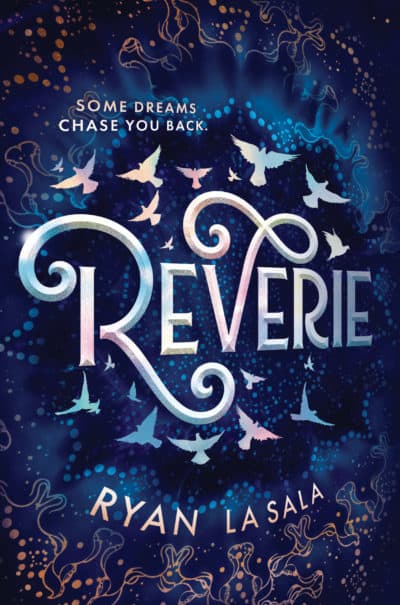Advertisement
Review
In Ryan La Sala's Debut Novel 'Reverie,' Queerness Is Power

"Reverie" — the debut young adult novel by Ryan La Sala, out on Dec. 3 from Sourcebooks Fire — is the story of others. Both the others in society and also the capitol-O Others, or what a group of four teenagers call themselves when they develop magical powers and battle chaotic forces in their small Connecticut town.
Mostly, though, the book is queer as hell.
Long before readers discover protagonist Kane Montgomery shooting rainbow-hued fire from his hands at a scene-stealing drag queen villain, readers realize that the characters in "Reverie" wield their queerness as power. Often literally.
“For some queer people, coming out is something that’s done to them,” says La Sala, who wrote the novel while he lived in Roxbury, the South End, and Somerville before moving to New York City this past summer. “It’s a story that’s told around them.”
That is, those like Kane — whose coming out experience mirror’s La Sala’s — don’t really have the ability of being in because their childhood eccentricities effectively outed them. We learn, “Maybe a more astute child would have tried harder to rein themselves in, but Kane was the last to know he was gay and therefore powerless to deny it once he was finally told.” The word powerless might be there, but there’s also a power to this post-coming out point of view — a welcomed result of books about queer characters actually being written by queer people. There are no plot points fueled by what if everyone finds out I’m gay paranoia. Kane and the others don’t have time for handwringing when they’re too busy saving the town.
The book opens on Kane’s conundrum: He recently woke up from a coma and doesn’t remember why he crashed his dad’s car into a town landmark. Turns out he’s forgotten whole chunks of his life before that, too. Slowly, he pieces memories together as he befriends three fellow high school students and learns that they all have magical powers. Kane wields prismatic flames, “alleged lesbian jock” and brawler Ursula flings protective shields, “Reigning Sociopath of Amity Regional High” Adeline alters memories, and “jawline-blessed Adonis” Elliot creates illusions.
Recent brush with the law aside, Kane’s a quiet kid who befriends lunch ladies and prefers to hang with books. Reality isn’t so great, but he’s managing. Fantasy, though? That’ll kill you, thanks to a strange phenomenon the Others call “reveries.”
Reveries are born of anxieties and fears and manifest as alternate universes that bleed into this one — pulling unwilling townspeople into strange settings and storylines. La Sala was influenced by his love of anime, especially the 1985 film "Nausicaä of the Valley of the Wind" when creating his otherworldly landscapes. The Others are able to enter these alternate worlds and only Kane can cast them away and free those trapped inside. Reveries pop up all over town, catching the attention of a sorceress drag queen named Poesy, who may have a strange connection to Kane.

“So much about 'Reverie' is about the stories we tell ourselves and the stories we learn,” La Sala says. “And tropes are a big part of that, but I was interested in subverting them.”
The author credits "Sailor Moon" as an influence and the plot owes a lot to tropes in that beloved anime. Damsels in distress save the day. The monologuing villain is a nine-foot-tall drag queen with a penchant for platform boots, who fights with a charm bracelet and teacups. There’s the requisite, “is this mysterious boy a friend or foe?” pondering, but both characters are male and Kane’s crush may be “the prettiest boy he had ever seen up close” since he’s not one to pine over jocks. He and the Others are not who they seem.
La Sala’s strength lies in the story’s voice and humor that often breaks the fourth wall. When dropping into a dystopian reverie, one character actually says, “Judging off clichés, I’d say this is a dystopian teen reverie.” La Sala has fun with cranking the volume on the clichés, and the alternate worlds allow for variety beyond the small Connecticut town. The prose alternates from lush lines of skies having “a dreamlike, candied haze,” to a room in a police station painted with the zinger, “Interrogation chic.”
"Reverie" revolves around storytelling and the creation of new worlds. The queer characters talk about longing for more accepting environments, but these climatic moments focus on narrative drive rather than self-pity. La Sala created a work that toys with fantasy — as in dreams contrasted with reality — and the fantasy genre itself, which for so long has had a narrow concept of who gets to be heroes. "Reverie" kicks open the doors to new voices, rainbow fire and all.
